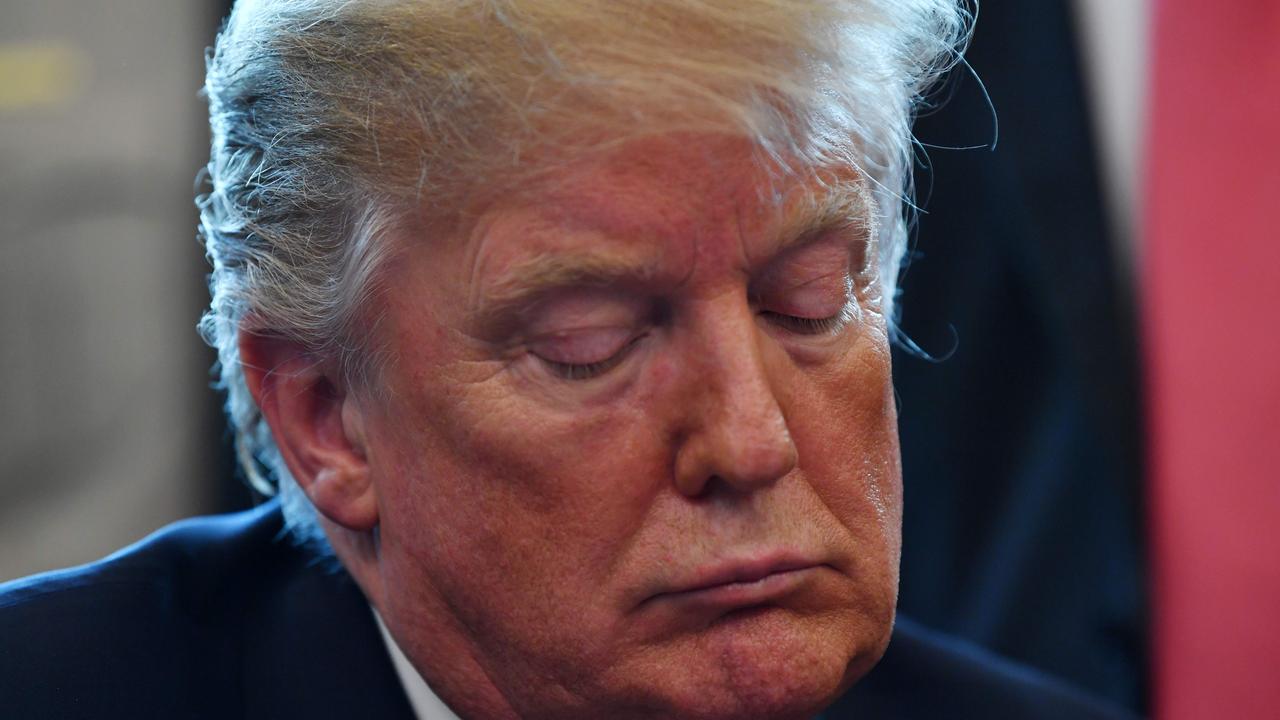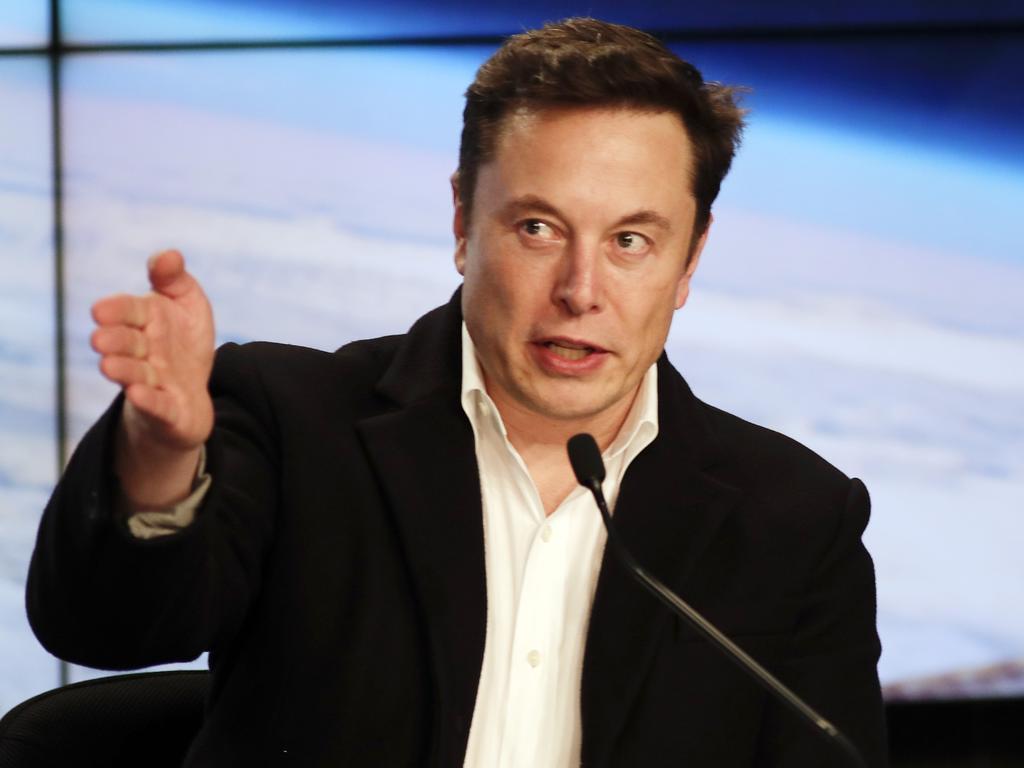US election: Donald Trump’s talking and people are listening
The crowd came to Valley Forge in anger and in hope yesterday to see Donald Trump.

The crowd came to Valley Forge in anger and in hope yesterday. They spoke of losing not only their jobs but entire industries, along with their self-confidence in America’s troubled rust belt. And in this historic place outside Philadelphia they heard Donald Trump speak to the America they have lost as they yearned to buy into his promise of something better.
And Trump was here in the key swing state of Pennsylvania at this moment because this crowd are his people and he knows the extraordinary events of the past week have suddenly given him a shot at stealing the presidency.
He didn’t let them down. He came to Valley Forge, an iconic site in America’s revolutionary wars, armed with the statistics of their demise, but blaming free trade, China and, of course, the Clintons.
Manufacturing jobs in Pennsylvania? Down 40 per cent since the US signed the North American Free-Trade Agreement, he told them. Jobs in Philadelphia? Down 30 per cent since China joined the World Trade Organisation. Health insurance? A state rise of 60 per cent in premiums for families as a result of the Affordable Health Act, otherwise known as Obamacare.
“We are going to bring manufacturing jobs, lots of jobs, back to Pennsylvania,” he told the crowd of 300 invited locals as they broke into chants of “Trump Trump Trump”.
“We are going to open modern mines and take care of our great miners … we will also bring back our steel workers … we are going to declare our independence from the failed establishment.”
It was the perfect pitch to Trump’s perfect audience: white, mostly male workers who are angry at their lot and who blame Washington and its supposed elites for creating a system which locks them out of the American dream.
It may still not be enough. Polls have Hillary Clinton leading in Pennsylvania, with its crucial 20 electoral college votes, by about six points. But the momentum of this campaign is firmly with Trump since the FBI’s shock decision to reopen its probe into Clinton’s use of a private email server.
So he is venturing deep into Clinton country in this final week of the campaign to try to tap the fears and the anger of those who feel they have been left behind.
“You know that the people here today are much more concerned with the economy, jobs and taxes than social issues like marriage equality’” says Jim Saring as he waits for Trump to appear.
Saring, the political director of Montgomery County Republican Committee (which includes Valley Forge), says the difficulty of winning Pennsylvania is that it is two states in one — the conservative rust belt rural zones and the heavily democratic well-educated inner-city folk of Philadelphia.
It’s hard for a candidate to span the affections of each of these different constituents. Not since Ronald Reagan in the 1980s has Pennsylvania voted for a Republican president.
But Perry Hamilton is the sort of guy who Trump appeals to. For 32 years Hamilton, 65, ran a hardwood timber company in Valley Forge, selling his produce to steel companies, shipyards and mining companies. But economic change, rationalisation and globalisation since the 1990s has had the effect of slowly killing his customers.
“I used to sell to these industries. I made a living with these people; they were my friends, we worked shoulder to shoulder together,” he says as he waits for Trump to speak. “But what I got was a front-row seat to the dismantling of my business, my livelihood and that of my friends.”
So Hamilton is bitter about “the system” that he believes killed his career. “I despise politics, I despise big bankers and I despise special interest groups,” he says.
“The thing about Trump is that he is an unscripted candidate who is not tied to any of these groups. He has a vision for success and he will not be thrown off course by the system.”
Kim Anderson, a 43-year-old mother of two young children, has also come to hear Trump speak.
She says she will vote for Trump because of Obamacare, which she claims has caused her health insurance premiums to rise $US1150 ($1505) a month.
“I need health insurance for my family but I can’t afford that,” she says, echoing the thoughts of other Republicans at this speech who say the attempts by President Barack Obama to introduce even partial health cover amounts to an assault on personal freedom rather than a social safety net.
She admits she “was bothered” by Trump’s lewd comments about women in a recording last month but not enough to not vote for him.
“Look, I was bothered by what he said, but that is so low on my list of priorities compared with other things like the economy and jobs that I just put it aside,” Anderson says.
The theme of the Washington outsider is one that Trump keeps repeating because it gets such a powerful response from his audiences who believe the status quo in politics is their enemy.
“I am not a politician,” Trump said yesterday. “My only special interest is you, the American people.
“The guiding rule of the political class in Washington DC is that they are looking out only for themselves. They will say anything, and do anything, to cling to their power and prestige at your expense.
“I’m running to change and reverse decades of failure, and to work with the American people to create generations of success.”
Trump does not explain how he would do this. Detail is not his strength, but for the angry white voters of the rust belt, solutions are secondary to the recognition of the problem.
And Trump yesterday gave them every reason to believe he knows what the problem is.
The question is whether he can persuade enough voters in Pennsylvania and in other swing states that he knows what the answer is.





To join the conversation, please log in. Don't have an account? Register
Join the conversation, you are commenting as Logout